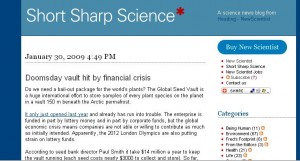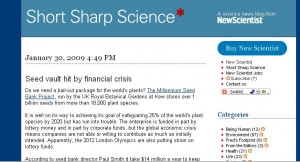It seems that citrus canker, a nasty bacterial disease, has been officially eradicated in Australia. Good news, but there is a bit of a dark lining. Along with 495,000 commercial citrus trees and 4000 residential trees, the eradication programme has included destroying a lot of trees of native Citrus glauca in the affected area. Desert Lime is well-known bush tucker, as well as a potential resource for Citrus breeding. It’s not currently considered endangered, but there’s not really all that much research about it 1, so that might be optimistic. There are only 8 germplasm accessions worldwide (page 29), apparently. That sounds inadequate to me. Especially given the historic proportions of the current drought, which is affecting the whole of SE Australia, including areas of C. glauca.
LATER: See also a map of the latest spate of bushfires in Australia. A threat to this and other crop wild relatives?

